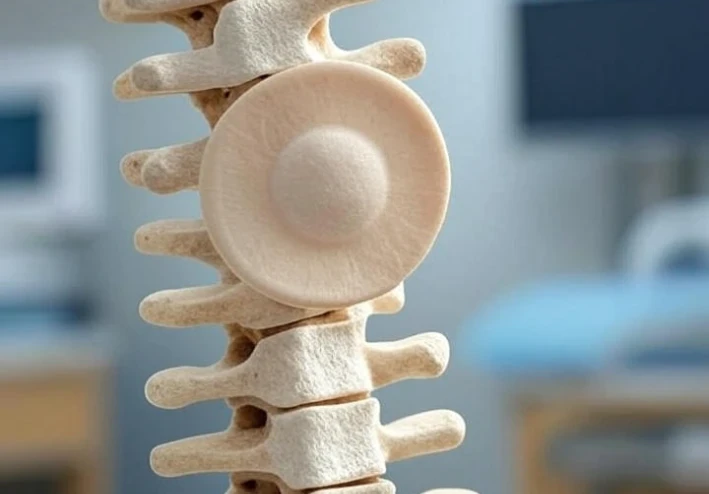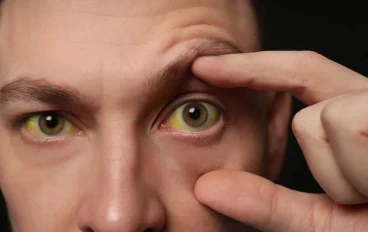
Understanding Herniated Disc: Symptoms, Treatment, and Prevention Guide
such as sciatica in the case of a lumbar herniated disc, which may cause pain, numbness, or tingling in the legs.
Numbness or tingling: Sensations in the arms, legs, hands, or feet due to nerve compression.
Muscle weakness: Weakness in muscles served by the affected nerve, potentially affecting mobility.
Loss of reflexes: In severe cases, reflexes in the affected area may be diminished.
If symptoms include loss of bladder or bowel control, immediate medical attention is required, as this may indicate cauda equina syndrome, a serious condition requiring urgent intervention.
Diagnosis of Herniated Discs
Accurate diagnosis is essential for effective treatment. Healthcare providers typically use the following methods:
Medical history and physical exam: A doctor will assess symptoms, reflexes, muscle strength, and sensation.
Imaging tests:
MRI: Provides detailed images of the spine and discs, confirming the presence and location of a herniation.
CT scan: Offers cross-sectional views of the spine to identify disc abnormalities.
X-rays: While not used to diagnose herniation directly, X-rays help rule out other causes of back pain, such as fractures.
Nerve tests: Electromyography (EMG) or nerve conduction studies may be used to assess nerve function.
Treatment Options for Herniated Discs
Most herniated disc cases improve with conservative treatments, though severe cases may require surgical intervention. Treatment options include:
Non-Surgical Treatments
Rest and activity modification: Short periods of rest followed by gradual resumption of activity can prevent stiffness and promote healing.
Physical therapy: Tailored exercises strengthen the back and core muscles, improve flexibility, and reduce pressure on the affected disc.
Medications:
Over-the-counter pain relievers like ibuprofen or acetaminophen.
Prescription medications, such as muscle relaxants or nerve pain medications (e.g., gabapentin).
In some cases, corticosteroid injections to reduce inflammation.
Chiropractic care: Spinal manipulation by a qualified chiropractor may provide relief for some patients.
Alternative therapies: Acupuncture, massage, or yoga may complement conventional treatments.
Surgical Treatments
Surgery is typically considered when conservative treatments fail after 6–12 weeks or if neurological symptoms worsen. Common procedures include:
Microdiscectomy: Removal of the herniated portion of the disc to relieve nerve pressure.
Laminectomy: Removal of part of the vertebra to create more space for the spinal cord or nerves.
Spinal fusion: Fusing two or more vertebrae to stabilize the spine.
Artificial disc replacement: Replacing the damaged disc with an artificial one to maintain spinal mobility.
Preventing Herniated Discs
While not all herniated discs can be prevented, certain lifestyle changes can reduce the risk:
Maintain a healthy weight: Reducing excess weight decreases stress on the spine.
Practice proper posture: Use ergonomic chairs, avoid slouching, and lift heavy objects correctly.
Exercise regularly: Focus on core-strengthening exercises, such as planks, and low-impact activities like swimming or walking.
Avoid repetitive strain: Take breaks during activities that involve repetitive bending or twisting.
Quit smoking: Smoking reduces blood flow to discs, accelerating degeneration.
Living with a Herniated Disc
Managing a herniated disc involves a combination of medical care, lifestyle adjustments, and patience. Many individuals experience significant improvement within weeks to months with proper treatment. Staying informed about the condition, adhering to a treatment plan, and maintaining an active lifestyle can help manage symptoms and prevent recurrence.
Conclusion
A herniated disc can significantly impact daily life, but with the right knowledge and approach, individuals can find relief and regain functionality. By understanding the causes, recognizing symptoms early, seeking timely diagnosis, and exploring appropriate treatment options, those affected can navigate this condition effectively. For personalized advice, consult a healthcare professional to develop a treatment plan tailored to your needs.



































